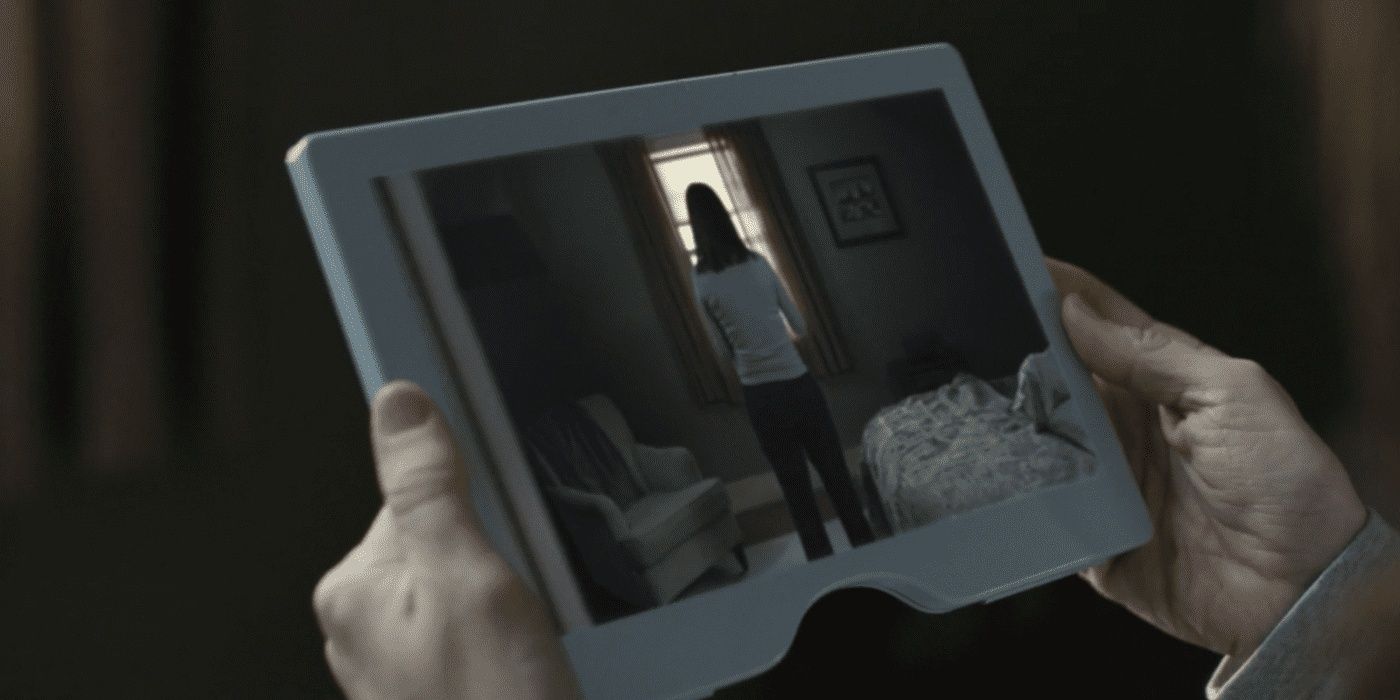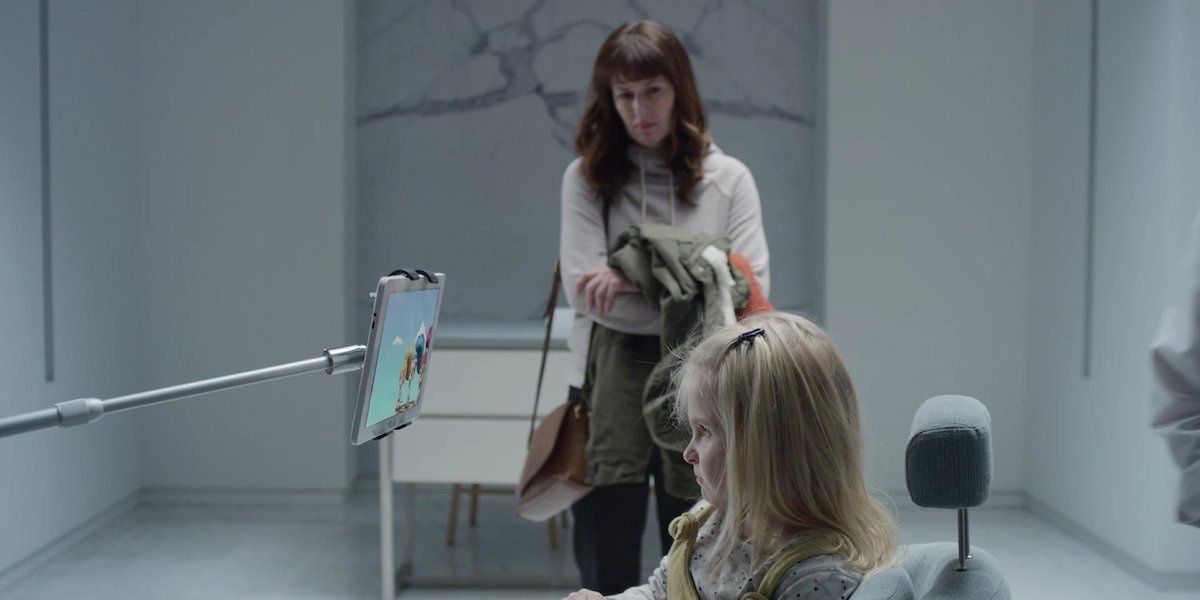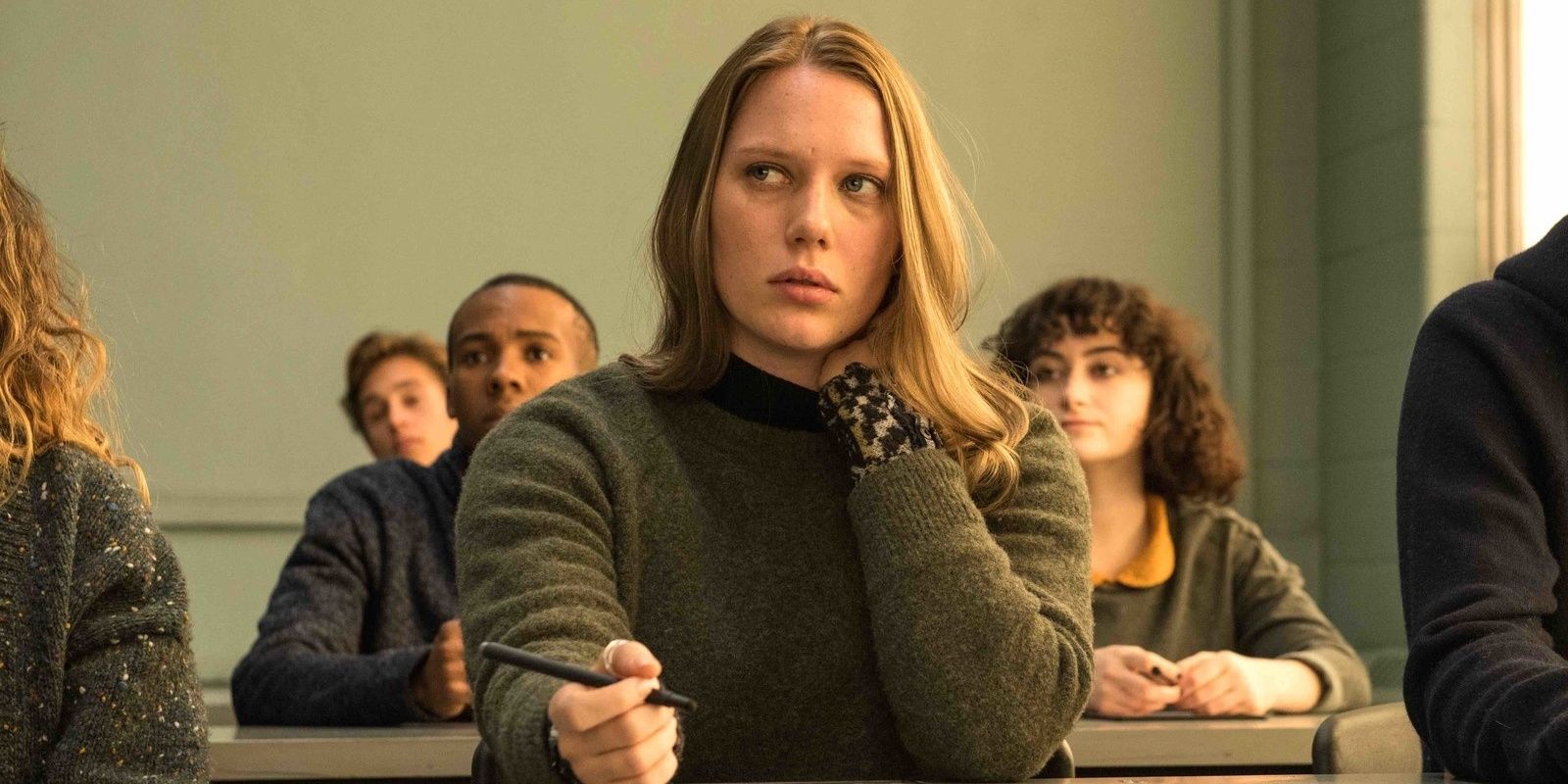Since its debut in 2011, Black Mirror has shocked and horrified audiences around the globe.Dealing with the harmful effects of science, technology, and pride, Black Mirror has become known for its strikingly horrendous similarities to modern society. "Arkangel" is no different, following a concerned mother who goes to extreme lengths to protect her daughter from the unforeseen dangers of the world.Despite the changes society has made in an attempt to emphasize independence, "Arkangel" demonstrates that while advancements in technology have its benefits, the lack of communication it breeds does more harm than good.
"Arkangel" is the second episode in Black Mirror's fourth season, which was released on Netflix in December of 2017.The episode follows Marie, a distressed mother, and her daughter Sara, and like any mother-daughter relationship, it is plagued with ups and downs. Despite the relationship's familiarity, in the world of Black Mirror, those ups and downs appear drastic and far-fetched. This makes "Arkangel" a chilling possibility for any parent-child relationship.
Many episodes of Black Mirror have been acknowledged for the haunting similarities they share with the world today. Yet, "Arkangel" differs from previous episodes by focusing on technology's influence on a deteriorating relationship between a parent and child. After an incident at the park where Sara goes missing for a few hours, Marie signs her up for an experimental trial of a new technological advancement: Arkangel, a neural implant. Arkangel gives Marie access to Sara's vitals, her sight and allows her to filter the appearance of certain objects on a tablet.
At first glance, Arkangel seems convenient for identifying illnesses and managing causes of stress, saving a parent like Marie, an unneeded trip to the doctor. Of course, like any piece of Black Mirror technology, Arkangel has its issues. Marie goes overboard with filtering Sara's sight and keeps small things like a barking dog from her.
While it's common for a parent to want to protect their child from something that may frighten them, this level of micromanagement prohibits a child from being able to understand and discover things for themselves. Without being able to hear the barking dog and respond to it as another person might, Sara is unable to form her own opinions and fears. Socially, this limits Sara and her ability to communicate with others on the things she cannot see.
After Sara begins to recognize that she is powerless when it comes to her own life and how she interacts with the world around her, she takes matters into her own hands. Sara injures herself and Marie thinks she's suffering from an undiagnosed disorder or disability rather than considering that Arkangel could be a factor. In fact, it is during this doctor's visit that it is revealed that Arkangel was shut down and never officially launched (due to its immoral and unsafe nature). So, Marie begins to pull away from the software and her relationship with Sara begins to reflect that of an ordinarily healthy parent-child relationship.
Of course, once normalcy has been disrupted, as it has been with the initial installation of Arkangel, it becomes hard to forget that 'normal' used to look very different. When Sara lies to her mother about where she will be one night (like a typical teenager), Marie grows worried. After Sara fails to answer her mother's phone calls and misses her curfew, Marie turns to an old friend for answers.
In a desperate attempt to calm her nerves, Marie digs out the Arkangel tablet and finds her daughter in an incredibly intimate moment. Horrified by her daughter's willingness to keep secrets from her, Marie begins to keep Arkangel close by once again. Rather than having a conversation with her daughter, Marie continues to invade Sara's privacy and take advantage of her trust by spying on her. While Marie's concerns for Sara as a child are arguably based on valid reasons for protection, as Sara blossoms into a young woman, it's morally wrong for Marie to use the system without Sara's consent.
This emphasizes the overarching issue in "Arkangel" and its striking commentary on the damages brought by overprotective parenting: a lack of communication. Obsessed with her daughter's safety, Marie becomes swept up in monitoring Sara through a screen rather than having an open dialogue with her (reflecting how social media and other forms of technology impact people today).
Marie dangerously assumes that she knows the context of the situations she observes through Sara's eye, but each time, she's wrong. And despite being wrong, Marie never admits her error. She never apologizes for spying on her daughter or betraying her trust (for teens, this seems like typical parental behavior). Of the many misunderstandings that arise in Marie and Sara's relationship, there are very few that could be fixed with communication.
The best example of this is in "Arkangel's" third act. Through her use of the tablet, Marie finds out that Sara is pregnant. Rather than talking with Sara about what she saw and what she has learned, Marie decides to deal with the situation herself. Without Sara's knowledge or consent, Marie mixes an emergency contraceptive pill into Sara's morning smoothie. This does not only violate Sarah (physically this time) but infringes on her right to choose. It isn't until Sara is sick at school that she learns of what her mother has done.
At its core, "Arkangel" is a tale of loss. The loss of communication and trust between Marie and Sara only scratches the surface. Marie nearly lost Sara at birth, during the incident at the park, and worries about losing her throughout her teenage years. Losing her daughter is what Marie feared most and by the end, that's exactly what happens. Of course, Marie is not the only victim of loss. Sara loses her boyfriend, her mother, her unborn child, and for a long time, her ability to live a normal life. By the end, Sara is free of her mother's Big Brother-like gaze but ultimately finds herself all alone.
Directed by Jodie Foster, "Arkangel" emphasizes the danger of overprotective parenting and the consequences that may stem from it. While Black Mirror poses itself as a work of fiction, the parallels evident in its episodes upon their release as well as the years that follow, suggest that as far away as these concepts seem, society continues to get eerily close to making them into a reality.



